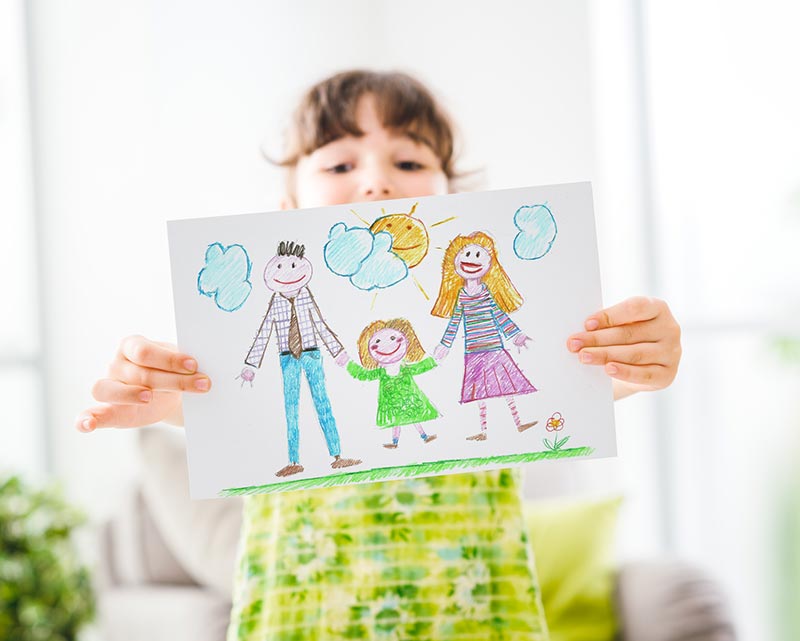It has long been believed that adopting a child is the best way to solve infertility problems and achieve parental goals. It is common to imagine adoption as a fairy tale or a story with a happy ending in both beloved children’s stories and films, but in reality, adoption is not a fairy tale ending. Despite its simplicity, the application is intricate and complex. It is challenging to adopt because there are many factors involved, including the legal process, the adoptive child’s emotions, and the birth parents’ needs. Adoption is not a fairy tale ending, but adoptions can be fairy tales with a twist ending and a challenging process. In this article, we’ll look at the knotty nature of adoption and why it’s critical to have a firm grasp of the journey’s actual conditions.
The Reality of the Adoption Process
There is a stereotype in the media that adoption is a cause for celebration, but in reality, it can be a long and complex process of uncertainty. Prospective adoptive parents face several obstacles, such as; long waiting lists and high costs. In the United States, the average cost of domestic adoption is $45,000, making it beyond the reach of many individuals and families.
Adoptive parents also do considerable pre-adoption research, including background checks, interviews, and paperwork. This process may take a long time and require a lot of work.
Adoption interruptions pose additional challenges because they introduce uncertainty into the process. For many reasons, such as; a change of heart or a legal challenge, adoptions may be unsuccessful despite the significant financial and emotional investment made by the prospective parents. People’s mental and emotional health may be negatively affected by these disruptions, proving adoption is not a fairy tale ending.
The adaptive process also has profound effects on the child’s biological parents. Birth parents may also deal with the emotional fallout of adopting a child, besides the legal and logistical challenges involved. It indicates that adoption is not a fairy tale ending, and the process may tax the parent’s emotions.
As a whole, adoptions can be fairy tales that don’t have a happy ending always and are far more challenging than it is portrayed in the media and popular culture. Both biological parents, the child, and adoptive parents face a lot of problems, such as; long wait times, high costs, and legal and emotional hurdles. Everyone who wants to understand the adoption process and help those affected must know these details.
Challenges of Adopted Children
Adoption may offer a family a lot of pleasure and love, but it also comes with its own set of obstacles for the adopted kid. Adopted children may have identity challenges since they are separated from their birth family and cultural background. This might result in feelings of loss, sadness, and confusion. Adopted children may also endure trauma and grief due to separation from their biological family, which may lead to psychological and behavioral problems. And adoptions are all portrayed as fairy tales without happy ending.
Attachment and bonding may be difficult for adopted children, particularly if they have been exposed to trauma or neglect prior to adoption. This may have an effect on the child’s capacity to build positive connections and trust people. Adopted children may also have particular requirements or medical issues that need more care.
Adopted children may also face discrimination and stigma, which may negatively influence their self-esteem and mental health. This might arise from classmates, family members, or even strangers who may doubt their family’s authenticity or make offensive remarks about their adoption.
Adoptive parents must recognize and should be prepared for these issues, as adoption is not a fairy tale ending. They must give assistance and resources to assist their kid in navigating them. This may involve counseling, cultural education, and networking with other adoptive families. Adoptive parents may establish a caring and supportive environment for their child to grow by understanding and addressing these obstacles.
Challenges of Adoptive Parents
Choosing to adopt a child means making a life-altering decision that comes with its own set of responsibilities and hardships. While adoption may offer a lot of pleasure and love, it can also be a complicated and emotional process that demands a lot of thought and planning.
The emotional rollercoaster that comes with the adoption process is one of the most difficult obstacles that adoptive parents have to face. Adoption may be a lengthy and unpredictable path, with unanticipated emotional ups and downs, changes in legal or medical situations, and interruptions. This may be particularly tough for adoptive parents who have put a lot of time, money, and emotion into the adoption process.
Adoptive parents may also encounter difficulties developing a link with their adopted kid, particularly if the child has undergone trauma or attachment disorders. Creating trust and a stable relationship with their adopted child may require more effort from adoptive parents.
Aside from the legal and logistical challenges of adoption, adoptive parents face additional obstacles. To verify their readiness for adoption, adoptive parents must follow all legal criteria and go through a comprehensive screening procedure.
The parents of an adoptee of a different race, ethnicity, or religion may also experience social shame and prejudice. They may hear inappropriate remarks, invasive questioning, or even discrimination in schools, social gatherings, or on the job.
So adopting a child is a joyful and life-changing event for adoptive parents, but adoption is not a fairy tale ending and comes with its own set of obstacles. Adoptive parents must recognize and prepare for these problems, as well as seek aid and resources to help them traverse the adoption path with confidence and resilience.
Conclusion
Adoption is not a fairy tale ending; it is a complicated and emotional procedure that demands considerable thought and planning. While the goal of giving a kid in need a loving home is admirable, it is important to know the hardships and obligations that come with adoption. Adoptive parents must be prepared to negotiate legal obligations, emotional bonds, and any health or background concerns with their kids. Adopted children may also suffer particular obstacles relating to their adoption, such as identity issues or emotions of abandonment. Adoption, on the other hand, maybe a joyful experience for both the kid and their adoptive family with the correct support and tools. Anyone thinking about adoption should properly study and prepare for the process, as well as seek help and support from certified specialists.






